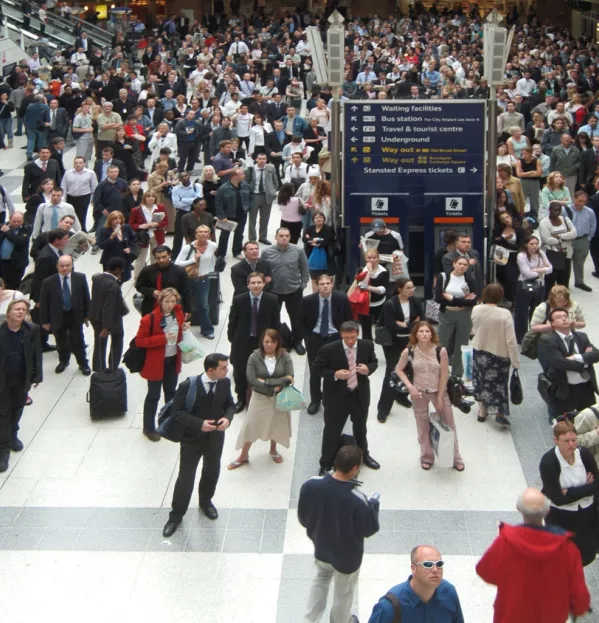In the early 2000s, my wife and I were both at university in Durham. She was doing her teacher training in a couple of local schools that largely served former mining villages. These schools were 99 per cent white, and full of families and staff who, in many instances, had literally lived, been educated and now worked within a few square miles of rural County Durham. Many pupils had never been to Newcastle, all of 20 minutes away.
I was reminded of this by data from the Centre for Cities highlighting the magnetism of London as a graduate destination. The capital accounts for about 19 per cent of all jobs. But six months after graduation, it employs 22 per cent of graduates and 38 per cent of new graduates who have a first or 2:1 from the Russell Group of leading universities.
The flow of graduates has a direct impact on major cities
This flow of graduates has a direct impact on other major cities, which can’t hold on to the young people who move there to attend university. Manchester loses 67 per cent of its graduating students, Birmingham 76 per cent and Southampton 86 per cent.
An England divided by education
As is increasingly common, we have a story here of an England divided by education: the graduate class are footloose and those with fewer qualifications remain static.
It’s easy for the readers of this column - almost entirely graduates - to belittle the latter category or, at best, express bafflement. Certainly, as two relatively mobile young people (who had both moved up to Durham from the South East, and then promptly moved back), my wife and I found the communities she was teaching in quite challenging to understand.
My colleague David Goodhart has written very well on what he calls the “cruise liner” theory of the nation, in which society is seen as an arbitrary collection of individuals without any allegiances to each other beyond a temporary shared voyage.
A failure to understand the deep-seated ties of communities is the cause of much political navel-gazing
A failure to understand the deep-seated ties of communities, and the reasons why it may seem entirely appropriate to remain within a local area for generations, is the cause of much recent political navel-gazing among the elite.
Such conflicting experiences of movement have deep implications for the education system. On a practical level, they explain some of the difficulty that areas of the country have in attracting and retaining graduate teacher talent (and their graduate spouses). If Manchester, Birmingham and Southampton struggle to keep graduates, what can Blackpool, Scarborough or Hastings do?
The phenomenon also offers challenges for teachers in those communities. We’re used to thinking that it is an unalloyed good to raise pupils’ aspirations, and to give them new experiences and destinations. That’s surely right: education must offer young people options beyond what they would otherwise have.
But footloose graduates must also be more aware that the challenges for some young people of breaking out of community ties and taking different perspectives - such as choosing whether and where to go to university - are about more than simply practical considerations. They must understand that, sometimes, social mobility really does start with a bus trip to Newcastle.
Jonathan Simons is a former head of education in the Prime Minister’s Strategy Unit under Gordon Brown and David Cameron
